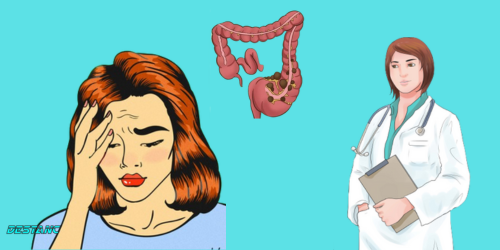Unusual signs of colon cancer that women often ignore
Colon cancer is a serious health problem that can affect both men and women. Although the traditional symptoms of colon cancer are well known, there are unusual symptoms that women may ignore. Recognizing these abnormalities is critical for early detection and prompt action. In this article, we’ll explore some of the unusual symptoms of colon cancer that women may inadvertently ignore, and show the importance of vigilance and regular screening.
Part 1: Understanding Colon Cancer in Women

Colorectal Cancer Review
Brief information about colon cancer and its prevalence.
Emphasizing the importance of awareness and early detection.
Part 2: Unusual symptoms women may miss
- Change in bowel habits:
Discuss subtle changes in bowel patterns such as diarrhea and constipation.
Investigate whether these changes may be early signs of colon disease.
- Pelvic pain and discomfort:
Less common symptoms may explain how long pelvic pain or discomfort has lasted.
Discuss the relationship between colon cancer and pelvic symptoms.
- Unexplained weight loss:
To investigate whether unexplained weight loss is a sign of advanced colon cancer.
We discussed the metabolic effects of cancer on the body.
- Fatigue and weakness:
Chronic fatigue and weakness are considered by women to be symptoms of other causes.
Explaining the physiological effects of colon cancer on energy levels.
- Iron deficiency anemia:
Colon cancer can lead to chronic bleeding and iron deficiency anemia.
Discuss the relationship between colon polyps, bleeding, and anemia.
Part 3: Risk factors and screening recommendations

Common risk factors
Identification of common risk factors for colon cancer in women.
The influence of age, family history, and lifestyle choices is discussed.
The importance of regular checkups
He emphasized the importance of regular screening for early detection.
Suggested screening methods include colonoscopy and stool analysis.
Section 4: Getting medical help and diagnosis
Medical emergency
He emphasized the need for immediate medical attention in case of unusual symptoms.
Encourage women to communicate openly with health care providers about their concerns.
Diagnostic procedures
Discuss the diagnostic procedures used to confirm or rule out colon cancer.
Emphasis is placed on the role of colonoscopy, imaging studies, and blood tests in the diagnostic process.
In conclusion, awareness of unusual symptoms of colon cancer that may be overlooked in women is important for early detection and improved outcomes. Women should pay attention to changes in their bodies and seek immediate medical attention if symptoms occur. Regular checkups and open communication with health care providers are critical to maintaining colon health and reducing the risk of colon cancer. By being vigilant and informed, women can take proactive steps toward early detection and successful management of colon cancer.



